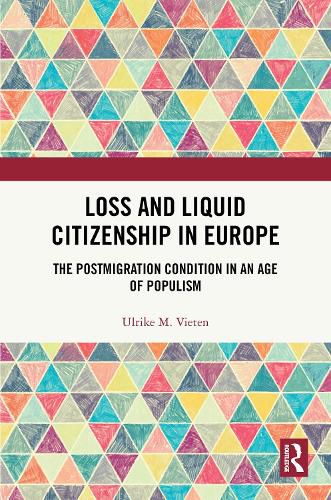Readings Newsletter
Become a Readings Member to make your shopping experience even easier.
Sign in or sign up for free!
You’re not far away from qualifying for FREE standard shipping within Australia
You’ve qualified for FREE standard shipping within Australia
The cart is loading…






Loss and Liquid Citizenship in Europe offers a means of understanding how experiences of loss intersect with discourses of migration and citizenship, to affect feelings of belonging with respect to host communities and newcomers. Adopting a decolonial and intersectional perspective, it examines the condition of post-migration, regarding it as a space of social, cultural and political transformation. In doing so, it questions the dominant binary in terms both of both legal distinctions and of socio-cultural distinctions between settled majorities and migrating minorities. Confronted with the spread of a neo-populist, far-right political agenda across the world, this book provides new insights into ways in which we might re-conceptualise a vision of social inclusion for both majorities and minorities on the move. As such, it will appeal to scholars and students across the social sciences with interests in migration and diaspora, citizenship and belonging.
$9.00 standard shipping within Australia
FREE standard shipping within Australia for orders over $100.00
Express & International shipping calculated at checkout
Loss and Liquid Citizenship in Europe offers a means of understanding how experiences of loss intersect with discourses of migration and citizenship, to affect feelings of belonging with respect to host communities and newcomers. Adopting a decolonial and intersectional perspective, it examines the condition of post-migration, regarding it as a space of social, cultural and political transformation. In doing so, it questions the dominant binary in terms both of both legal distinctions and of socio-cultural distinctions between settled majorities and migrating minorities. Confronted with the spread of a neo-populist, far-right political agenda across the world, this book provides new insights into ways in which we might re-conceptualise a vision of social inclusion for both majorities and minorities on the move. As such, it will appeal to scholars and students across the social sciences with interests in migration and diaspora, citizenship and belonging.